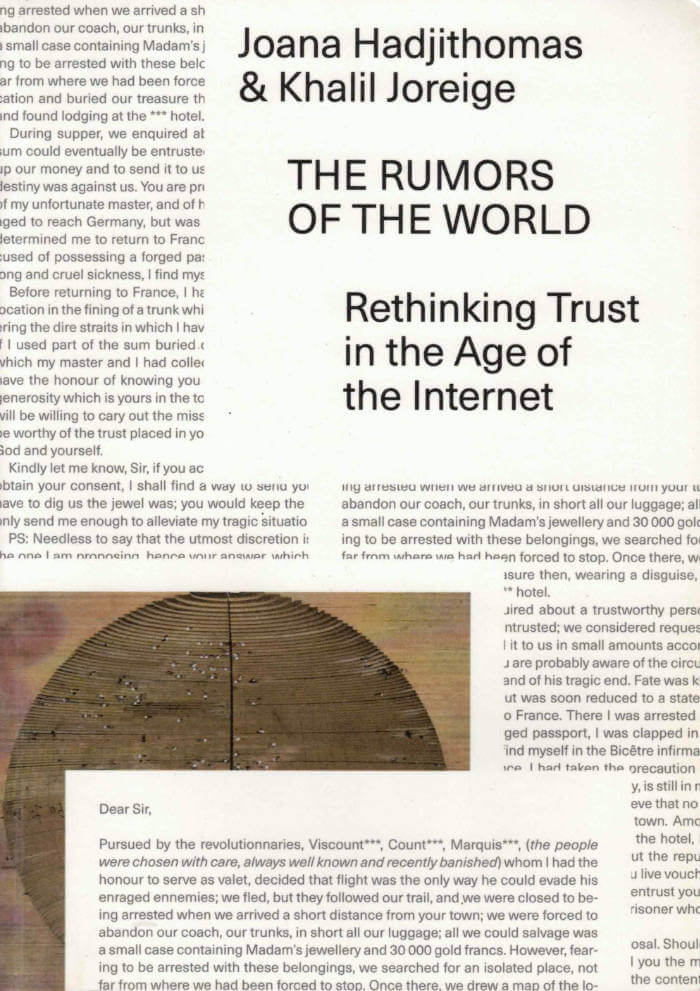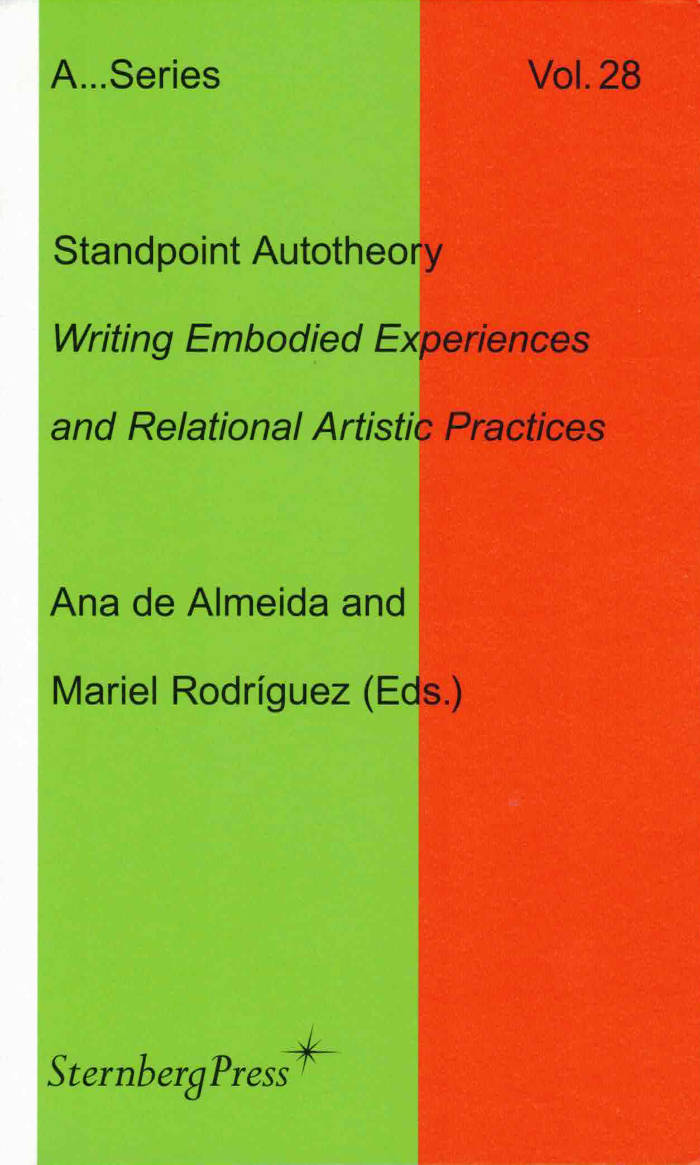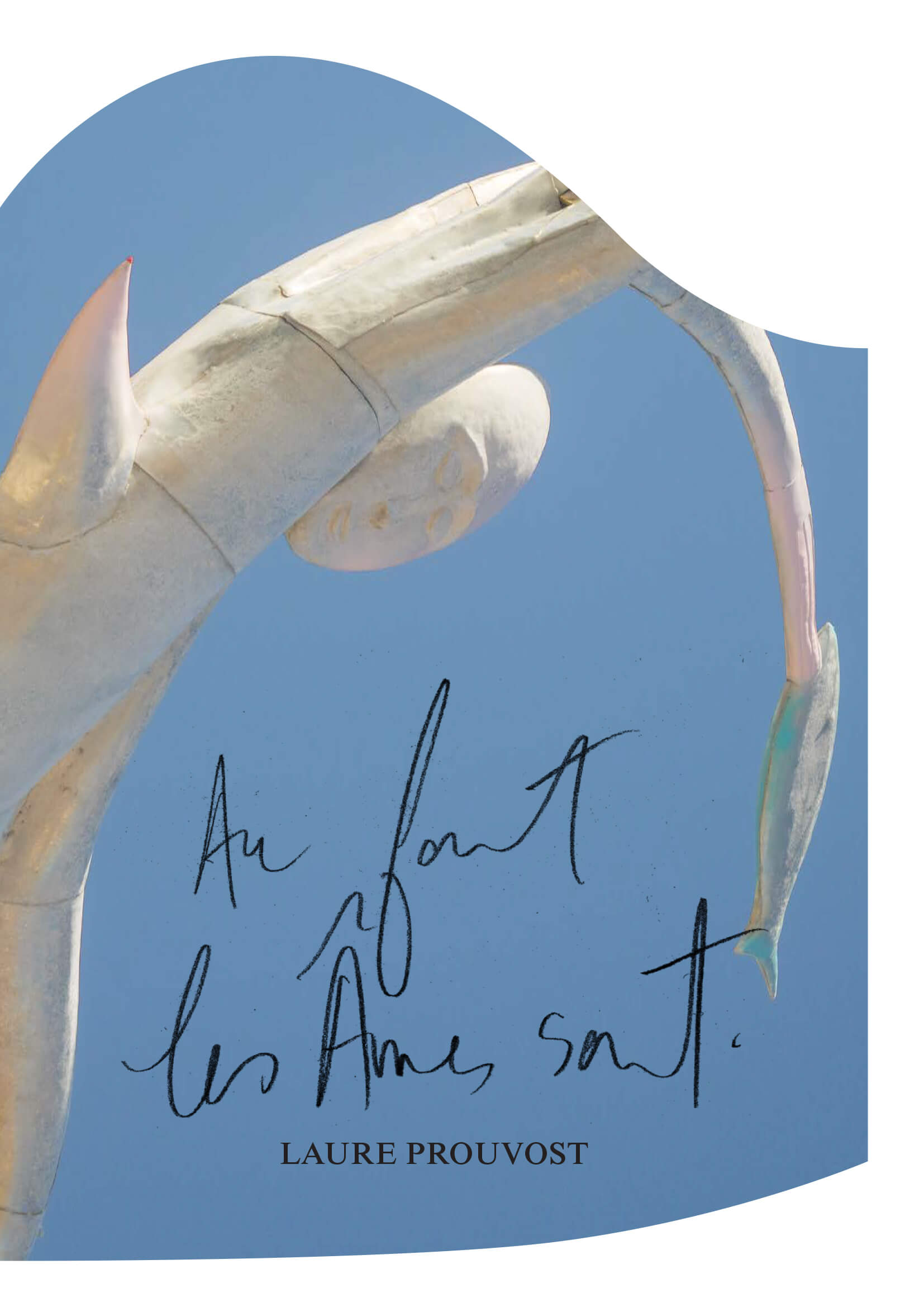
The Rumors of the World – Rethinking Trust in the Age of the Internet
Khalil Joreige, Joana Hadjithomas
This book traces the work and research of filmmakers and visual artists Joana Hadjithomas and Khalil Joreige and their exploration through their work of online spam e-mails, specifically, advance-fee frauds and scam messages.
This monograph presents material collected by the artists since 1999, focusing on the way that personal narratives are formed and articulated in a post-digital age. This work functions as a starting point for a broader discussion by leading scholars and thinkers on the nature of power and trust in the age of the Internet. Underlying this is an interrogation of faith: How has trust been recomposed by the Internet, and equally, how does the traditional practice of faith question the way that individuals relate to each other online?
Since the mid-1990s, Lebanese artists Joana Hadjithomas & Khalil Joreige (b. 1969, live and work in Beirut, Lebanon, and Paris) have worked together in the visual arts and cinema–shooting documentaries and fictions such as "I Want To See," starring Catherine Deneuve and Rabih Mroué and screened at the Cannes Festival in 2008.
Their practice in both fields is imbued with a distinctive aesthetic that occupies spheres of the visible and the fictional, nourishing a fascinating back and forth between life and fiction. Investigative processes, excavation, and the representations of historic, social, cultural, and political factors are at the heart of their practice. In their words: "All our work exists on the frontier of a reality where the question of the territory and its delimitation (that of art, that of personal life), the question of the social body and the individual body, are constantly being posed."
Their films have been multi awarded in international festivals and enjoyed releases in many countries. Their artworks have been shown in museums, biennials and art centers around the world, in solo or collective exhibitions and are part of important public and private collections, such as Musée d'Art Moderne de la Ville de Paris; Guggenheim, New York; Centre Georges Pompidou, France; V & A London, Sharjah Art Foundation, UAE, etc.
Edited by Omar Kholeif.
Contributions by Nicholas Auray, Finn Brunton, Joana Hadjithomas & Khalil Joreige, Henriette Huldisch, Omar Kholeif, Norman M. Klein, Eric Mangion, Laura U. Marks, Franck Leibovici, Sarah Perks, Jacques Rancière, Uzma Rizvi, Rasha Salti.







